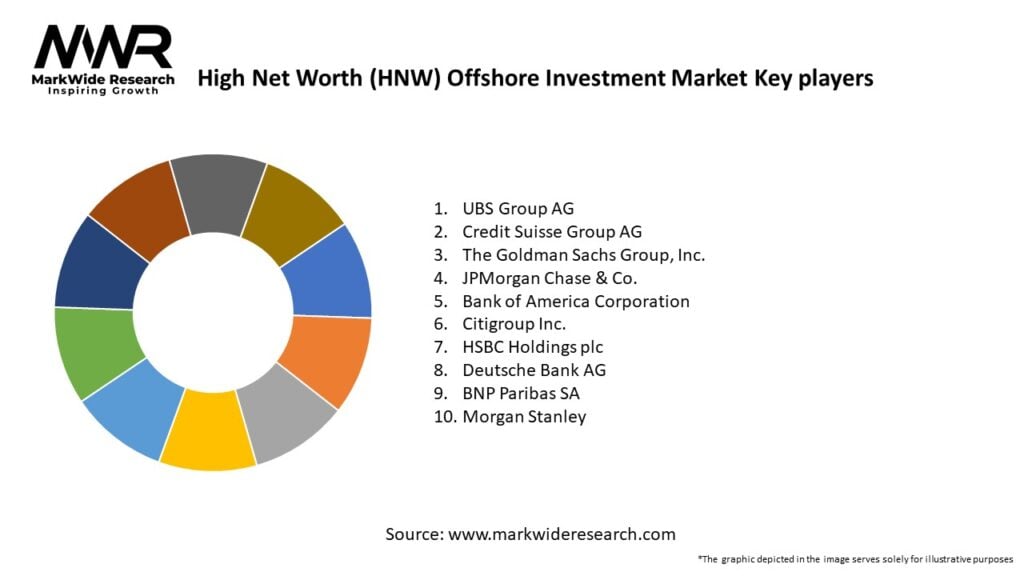Recognizing the Legal Facets of Offshore Investment Before You Get Going
Just How Offshore Financial Investment Works: A Step-by-Step Break Down for Financiers
Offshore investment presents a structured path for capitalists looking for to enhance their financial strategies while leveraging global possibilities. The procedure begins with the careful selection of a territory that straightens with a financier's goals, followed by the facility of an account with a credible overseas establishment.

Recognizing Offshore Investment
Understanding overseas investment involves acknowledging the tactical benefits it provides to corporations and people seeking to maximize their financial profiles. Offshore investments commonly refer to properties kept in an international jurisdiction, usually defined by favorable tax routines, governing atmospheres, and privacy protections. The main intention behind such financial investments is to enhance capital diversification, threat, and growth administration.

Capitalists can access a wide range of monetary tools through offshore venues, including stocks, bonds, shared funds, and genuine estate. These financial investments are usually structured to adhere to local laws while providing flexibility in terms of asset allotment. Furthermore, offshore investment techniques can allow companies and individuals to hedge against residential market volatility and geopolitical threats.
Another secret aspect of overseas investment is the capacity for enhanced personal privacy. A comprehensive understanding of both the advantages and obligations connected with offshore investments is essential for notified decision-making.
Benefits of Offshore Investing
Capitalists frequently transform to offshore investing for its many benefits, including tax effectiveness, asset security, and profile diversity. One of the main advantages is the possibility for tax optimization. Lots of overseas jurisdictions use beneficial tax regimens, enabling financiers to legitimately reduce their tax obligation obligations and maximize returns on their investments.
Furthermore, overseas accounts can give a layer of property protection. Offshore Investment. By placing assets in politically stable jurisdictions with strong privacy legislations, financiers can secure their wide range from possible lawful cases, financial institutions, or financial instability in their home nations. This kind of defense is specifically appealing to high-net-worth people and business owners encountering lawsuits threats
In addition, overseas investing promotes profile diversity. Accessing worldwide markets enables financiers to explore opportunities in various asset courses, consisting of property, stocks, and bonds, which may not be available locally. This diversity can minimize general portfolio risk and boost possible returns.
Ultimately, the advantages of overseas investing are compelling for those looking for to enhance their financial approaches. It is critical for capitalists to completely recognize the ramifications and regulations connected with overseas investments to make certain compliance and attain their financial objectives.
Selecting the Right Territory
Picking the ideal territory for offshore investing is a critical decision that can dramatically impact a financier's monetary approach. The right territory can give various advantages, consisting of favorable tax structures, property protection laws, and regulative settings that align with an investor's goals.
When picking a territory, consider elements such as the political stability and financial wellness of the nation, as these elements can affect investment protection and returns. The lawful structure bordering international investments should be evaluated to ensure compliance and protection of assets. Countries known for robust legal systems and transparency, like Singapore or Switzerland, frequently instill greater confidence amongst capitalists.
Furthermore, evaluate the tax obligation effects of the jurisdiction. Some nations offer appealing tax obligation incentives, while others might impose rigid reporting requirements. Recognizing these nuances can help in optimizing tax obligation liabilities.

Steps to Establish an Offshore Account
Establishing an overseas account entails a series of systematic steps that make sure conformity and safety and security. The very first step is picking a find more credible offshore banks, which ought to be accredited and regulated in its jurisdiction. Conduct detailed research to examine the establishment's trustworthiness, solutions offered, and client testimonials.
Next, gather the needed paperwork, which commonly includes identification, proof of address, and details pertaining to the source of funds. Different jurisdictions may have differing needs, so it is crucial to confirm what is needed.
When the documents is prepared, launch the application procedure. This may involve submitting types on the internet or personally, relying on the establishment's protocols. Be gotten ready for a due diligence process where the bank will confirm your identity and analyze any kind of potential risks associated with your account.
After approval, you will receive your account details, permitting you to fund your offshore account. It is advisable to maintain clear records of all transactions and follow tax regulations in your home country. Establishing the account correctly sets the foundation for reliable overseas financial investment monitoring in the future.
Taking Care Of and Checking Your Investments
When an offshore account is successfully established, the emphasis moves to handling and monitoring your investments effectively. This critical stage includes a methodical approach to guarantee your properties line up with your monetary goals and risk resistance.
Begin by developing a clear financial investment technique that outlines your purposes, whether they are prime preservation, income generation, or development. Regularly assess your portfolio's click to read efficiency against these criteria to examine whether adjustments are needed. Utilizing financial administration devices and systems can promote real-time monitoring of your investments, supplying understandings into market patterns and possession allocation.
Engaging with your offshore monetary consultant is essential. They can supply expertise and support, aiding you navigate complicated international markets and governing settings. Schedule routine reviews to go over efficiency, assess market problems, and click rectify your technique as needed.
Furthermore, stay notified regarding geopolitical developments and financial indications that may affect your financial investments. This proactive technique allows you to respond quickly to transforming circumstances, ensuring your offshore profile continues to be robust and lined up with your financial investment objectives. Inevitably, persistent administration and recurring surveillance are important for making the most of the benefits of your overseas financial investment approach.
Verdict
In final thought, offshore investment offers a strategic method for profile diversity and danger administration. Continued surveillance and cooperation with economic consultants stay vital for maintaining a nimble investment strategy in an ever-evolving global landscape.
Offshore investment offers an organized path for financiers seeking to maximize their economic approaches while leveraging worldwide opportunities.Understanding offshore investment entails acknowledging the strategic benefits it provides to individuals and firms looking for to optimize their economic portfolios. Offshore financial investments normally refer to assets held in an international jurisdiction, usually characterized by desirable tax regimes, regulative settings, and privacy securities. Additionally, overseas investment approaches can make it possible for services and individuals to hedge versus domestic market volatility and geopolitical dangers.
